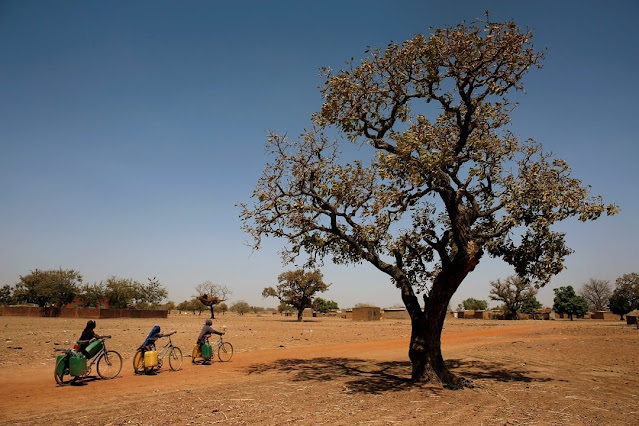Concluding thoughts
As established from the beginning of my blog, there is an abundance of water in Africa. The problem is the distribution, affordability and infrastructure to supply water in an equitable manner. As the blogs have unfolded, I hope I have stressed the layers of hardship African women face as a result of the fundamental issues regarding water accessibility. Girls' education is compromised from a young age - from water collection responsibilities to period poverty - it affects girls' and their intellectual growth. This also transcends into both the relative and absolute poverty women experience later on in life and their lack of involvement in decision-making. Furthermore, the multitude of dimensions of gender-based violence linked to water and sanitation in Africa is startling.
There is a lot of progress that needs to be made in order to alleviate women of the poverty that comes with water stress. Throughout my blogs, I have placed an emphasis on the importance of education. Education is crucial to female empowerment: it allows girls and women to engage at school in ways that will give them the confidence to speak up for what they need in a society that is otherwise male-dominated. Furthermore, studies have shown that where women are involved in decision-making and policy-making, there is a greater value placed on sustainability and equality. Climate change is a burden that African women experience differently and disproportionately, yet there is only one day out of a twelve-day conference dedicated to speaking about gender and climate change. The women of the CAMFED organisation have been paving the way for grassroot activism in the continent, and while their impact has been substantial, I believe they have the potential to spread their activism across more parts of Africa to make widespread positive changes.
Furthermore, social norms need to change. It is not as easy to change norms and cultural behaviours as it is internalised from a young age through both primary and secondary socialisation. However, the stigma surrounding periods needs to change and men's sense of entitlement over women's bodies need to stop, urgently. Water collection and relieving toilet habits are a dangerous and scary experience for girls and women due to these social norms. And I will stress again that education is key to the contribution of the solution to these issues. The case study of female participation in Ghana demonstrates the role social norms and gender norms play in the failure of a gendered approach to water and development in Africa. However, there is only so much that can be achieved by addressing micro-structures. The importance of legislating laws that directly address gendered inclusivity because without reforming macro-structures it'll be difficult to implement changes towards gender equality.

Arzoo, I have found your blog incredibly insightful and informative. As I was writing my own blog, I found that many of the issues surrounding topics such as water collection, sanitation struggles, are so much more multi-faceted than initially expected. I feel that many of us who have written the gender & development blog have noticed this as well. In fact, the level of hardship experienced by women in Africa, whether in rural or urban environments, is so complex, that it is challenging to relate to their daily lives and experiences. Overall, I think you have well researched your topics and brought some relevant case studies into discussion, ultimately bringing in your own voice and highlighting what needs to change and how. Well done!
ReplyDeleteThank you Greta! I think it is quite hard to relate to some of the challenges women face in Africa regarding water. As "western" women we need to challenge ideas of what feminism is - our gendered experiences are not universal and I think writing this blog and doing research for this blog has really highlighted the extent of this. I think what stuck with me most was period poverty - gendered experiences are not universal but the female anatomy (to a large extent) is. It was upsetting to see statistics about the number of women who have to use techniques of improvisation when they do not have access to MHP as it is something we almost take for granted.
Delete